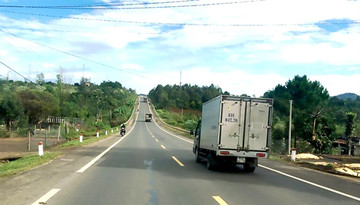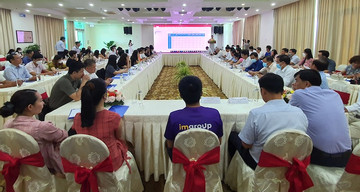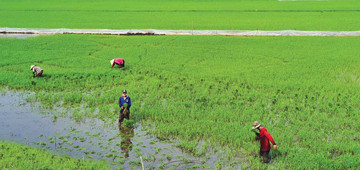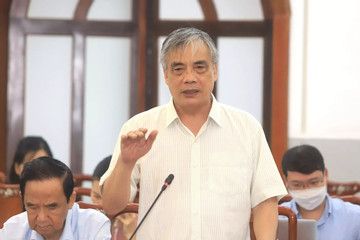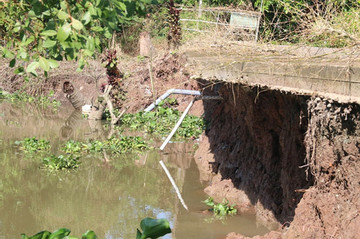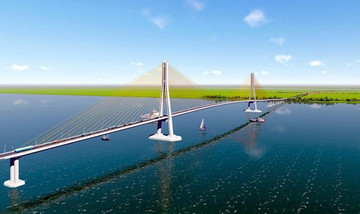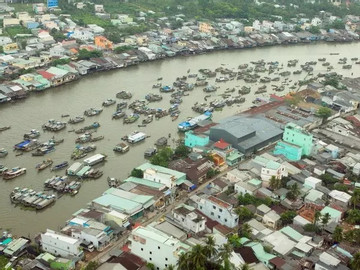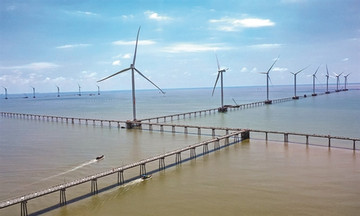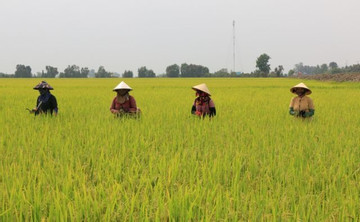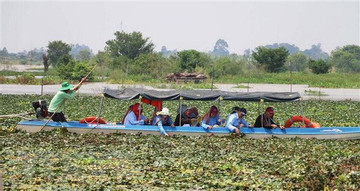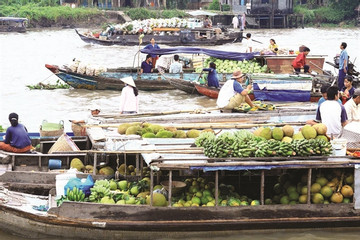- © Copyright of Vietnamnet Global.
- Tel: 024 3772 7988 Fax: (024) 37722734
- Email: evnn@vietnamnet.vn
Mekong Delta
Update news Mekong Delta
Mekong countries seek post-COVID tourism rebound
Sub-greater Mekong region countries need to join hands in reviving the previous dynamic growth of the Mekong tourism industry as an attractive destination for international tourists.
Roads in Mekong Delta need $163 million
The Ministry of Transport has submitted to the PM a pre-feasibility study report for the implementation of two road sections passing through Kien Giang and Bac Lieu under the trans-Vietnam 2744-km-long Ho Chi Minh Expressway project.
Flood tides threaten Mekong Delta
Provinces in the Mekong Delta are suffering from serious flooding as flood tides approach the 2019 historic peak.
Mekong Delta faces shortages of construction sand
Many provinces in the Mekong Delta region of Vietnam are facing a scarcity of construction sand for several key expressway projects.
Mekong Delta residents struggle to make a living in flood season
Over the years, the Mekong River has provided much for people living there, but recently the water has been low, causing shrimp, fish and other seafood catches to plummet.
Master plan for Mekong Delta focuses on infrastructure development
The Master Plan for the Mekong Delta designed for 2021-2030, with a vision to 2050, is focused on infrastructure development.
Projects proposed to increase traffic connectivity for Mekong Delta
Many localities in the Mekong Delta have been discussing ways to strengthen regional linkages, among which the field that needs to be connected first is traffic.
IT workforce shortage slows down digitalization in Mekong Delta
Despite its high population, the lack of information technology workers has hindered the Mekong Delta region’s digital economic development.
Everyone getting rich except farmers
Agriculture is the strength of the Mekong Delta. However, the large gap in living standards and employment opportunities between the agricultural and industrial sectors continues to create waves of migration from the region to the southeast region.
What’s the future for the southeastern region?
Tran Dinh Thien, a respected economist, believes that if Vietnam can exploit its potential, it will be a big player in the world’s energy map in the future.
Mekong delta tightens measures to fight erosion
Local authorities in the Cuu Long (Mekong) Delta have declared an emergency as erosion along rivers and coasts in many localities has increased.
VND8-trillion public investment approved for bridge in Mekong Delta
The Government has approved an VND8 trillion-plus budget for the first phase of the Dai Ngai Bridge linking the Mekong Delta provinces of Tra Vinh and Soc Trang.
Mekong Delta planning should include regional as well as local interests
A national cadres conference was organized recently to discuss policies on socio-economic development of the Mekong Delta by 2030, with a vision towards 2045.
Int’l financial institutions commit to financing US$2.2 bln for Mekong Delta
Six international financial institutions have committed to financing US$2.2 billion in ODA and preferential loans for 20 sustainable development projects in the Mekong Delta in adaption to climate change during 2021-2025.
PM issues action plan on Mekong Delta development
The Mekong Delta region is expected to develop agricultural centres in association with specialised farming zones and urban areas.
Mekong Delta eyes rapid development of renewable energy
The Mekong Delta will need to optimise its natural conditions to develop renewable energy and attract investment in the sector to mitigate the impacts of climate change, experts have said.
Mekong Delta farmers back away from rice as input costs rise
Rice farmers in many Mekong Delta provinces are reducing rice cultivation over rising prices of inputs like fertilisersnbsp;and pesticides.
Agri-tourism: Mekong Delta targets two birds with one stone
Ecotourism, especially agri-tourism will be a dominant trend as the Mekong Delta strives to develop its tourism industry, experts say.
Preserving the Mekong Delta's floating markets
The Mekong Delta's famed floating markets, where speciality products are sold on boats, provide a unique environment thatnbsp;is popular amongnbsp;both local and foreign visitors.
Raising the ‘Mekong river monster’, farmer pockets billions of dong
Ho fish (Catlocarpio siamensis), called the ‘Mekong river monster’, are being raised by farmers in cages on rivers in Vietnam.

